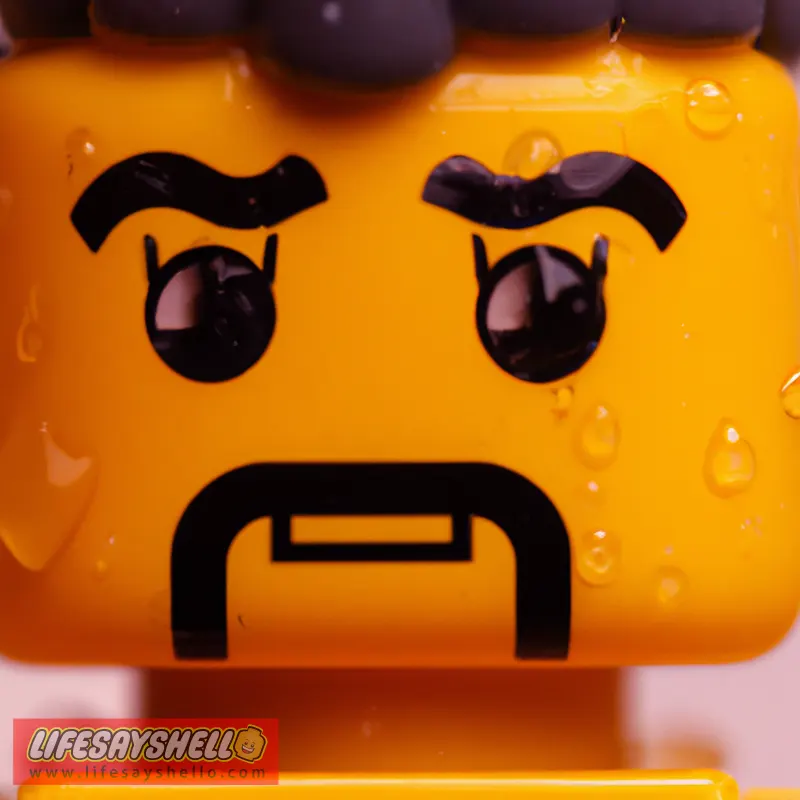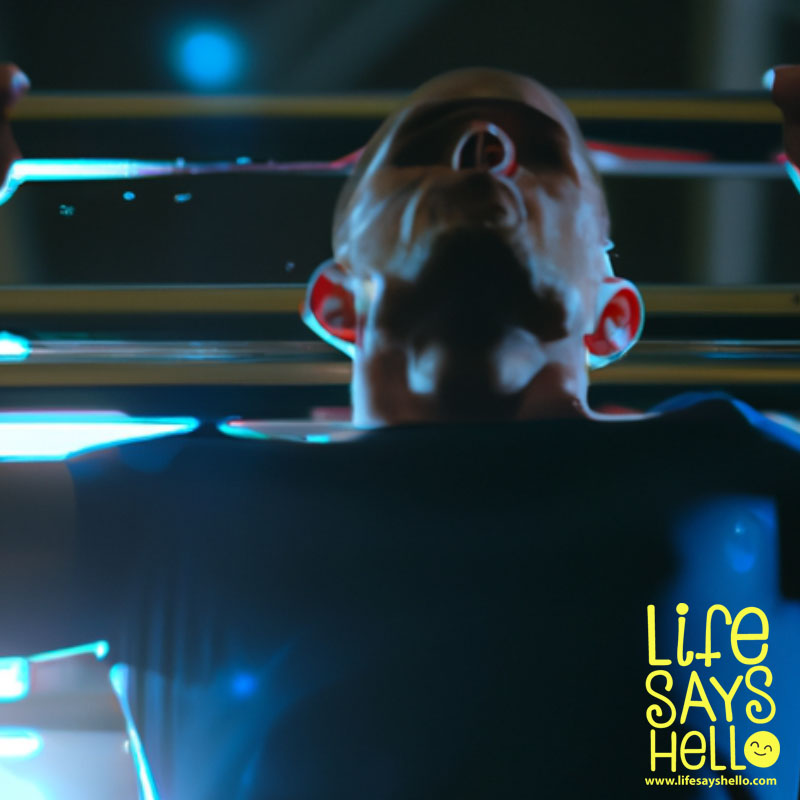Why You Sweat So Much During Exercise and How to Manage It

Sweating during exercise is a normal bodily function, but excessive perspiration can be uncomfortable. Learn what causes heavy sweating when working out and get tips on managing it.
Sweating is a natural process that helps regulate your body temperature when you get too hot. As your heart rate increases during exercise, your body works overtime to cool itself down. This causes you to perspire. But why do some people seem to sweat buckets during a workout, while others barely glisten?
Causes of Excessive Sweating During Exercise
For some fit folks, dripping sweat is just a fact of life when exercising. But others may be sweating more than necessary due to an underlying condition.
Idiopathic Hyperhidrosis
This is excessive sweating without a known cause. Doctors believe it happens when the nerves that trigger your sweat glands become overactive. This type of excessive perspiration often runs in families.
With idiopathic hyperhidrosis, you sweat more than needed for thermoregulation - regardless of the temperature or exercise intensity. You may notice unexplained sweating on your palms, soles, underarms, or even your face.
Secondary Hyperhidrosis
This type of excessive sweating is caused by an underlying health condition. Medical conditions that can lead to heavy sweating include:
- Diabetes
- Heart failure
- Thyroid disorders
- Anxiety disorders
- Certain cancers
- Spinal cord injury
Some medications also cause sweating as a side effect. Your doctor can help determine if a health condition or drug is contributing to your excessive perspiration.
Focal Hyperhidrosis
With focal hyperhidrosis, excessive sweating is localized to specific areas of your body. The most common zones are the hands, feet, underarms, and facial area.
In focal hyperhidrosis, sweat glands in the affected areas receive signals from nerves that trigger heavy perspiration. This can occur in response to heat, emotional stress, spicy foods, odors, and other stimuli.
Tips for Managing Excessive Sweating During Exercise
While sweating is a normal bodily function, excessive perspiration during workouts can be uncomfortable. Here are some practical tips for managing heavy sweating when you exercise:
1. Wear Sweat-Wicking Workout Gear
Choose lightweight, breathable fabrics that whisk moisture away from your skin. Materials like cotton absorb sweat and feel heavy when wet.
Instead, opt for sweat-wicking synthetics like polyester or nylon blends. Compression gear and moisture-wicking socks also help minimize wetness.
2. Apply Antiperspirant to Sweaty Zones
Swipe on an antiperspirant containing aluminum chloride or aluminum zirconium to your sweatiest spots before exercise. These ingredients help temporarily plug sweat ducts.
Reapply an over-the-counter antiperspirant after working out to continue controlling wetness. Your doctor may also prescribe a stronger antiperspirant if OTC formulas aren't effective enough.
3. Use Absorbent Powder
Sprinkle medicated body powder onto areas prone to moisture buildup before exercise. The powder helps soak up sweat.
Reapply if needed after your workout. Use caution with powders if you have sensitive skin.
4. Exercise in a Cool Environment
High temps and humidity cause your body to sweat more. When possible, opt for indoor workouts in an air-conditioned space during hot, humid weather.
Outdoors, exercise during the cooler times of day and seek shady spots when you need a breather. Stay hydrated to keep your internal temperature in check.
5. Take Breaks to Cool Down
During long cardio sessions, take occasional breaks to give your body a chance to recover. Walk slowly for a few minutes to lower your heart rate and body temp.
Drink cold water and splash some on your face and arms to cool down. Wipe away excess sweat with a towel. Then resume exercise when your body is ready.
6. Stay Hydrated
When you sweat heavily for long periods, you lose fluids and electrolytes like sodium and potassium. It's important to replace what you lose by drinking plenty of cool water before, during, and after exercise.
If you sweat profusely for over an hour, a sports drink can help replenish lost electrolytes. Just beware of the added sugars in some products.
Foods and Drinks to Help Reduce Sweating
While sweating serves an important bodily function, you may want to minimize excessive moisture during workouts. Some foods and beverages can help:
1. Water-Rich Fruits and Veggies
Fruits and vegetables with high water content help you stay hydrated. This supports your body's ability to regulate its temperature through sweating.
Some examples are apples, grapes, watermelon, oranges, strawberries, pineapples, peaches, celery, eggplant, cabbage, bell peppers, spinach, lettuce, and cucumbers.
2. Calcium-Rich Foods
Calcium is a mineral that helps control your core body temperature. Getting enough calcium from foods like low-fat dairy products, fortified juices, and greens can reduce sweating.
3. Magnesium-Rich Foods
Magnesium helps regulate body temperature and may lower stress hormones that trigger perspiration. Enjoy magnesium-rich foods like spinach, pumpkin seeds, brown rice, yogurt, bananas, and dark chocolate.
4. Avoid Spicy, Fatty, Salty Foods
Spicy foods contain compounds that boost your internal temperature, prompting you to sweat more. High-fat, fried, and salty foods also increase sweating by raising body heat.
Limit these trigger foods before big workouts when you want to minimize heavy sweating. Opt for clean, whole food options that provide nutrients without the unwanted side effects.
5. Stay Hydrated
Drinking plenty of water before, during and after exercise helps regulate your body temperature through sweating. Dehydration causes your body to sweat more in an attempt to cool you down.
Aim to drink about 2-3 cups of water 2 hours before exercise. Then another 1⁄2 to 1 cup every 15-20 minutes during your workout to replace fluids lost through heavy sweating.
After exercise, drink up to replace any remaining fluid deficits. If you weigh yourself before and after the workout, drink 16-24 oz of fluid for every pound lost through sweating to rehydrate your body.
When to See a Doctor
Excessive sweating can be uncomfortable and embarrassing during exercise. But it’s important to remember that perspiring is your body’s natural cooling mechanism.
You don’t need to eliminate sweating completely. However, if heavy sweating is interfering with your everyday activities, talk to your healthcare provider.
See your doctor if you experience:
- Sweating that disrupts your sleep
- Perspiration dripping from your hands, even at rest
- The need to change clothes multiple times a day from sweating
- Dehydration from excessive fluid loss
- Skin problems like infections due to wetness
Your doctor can assess for any underlying causes and may recommend specialized testing. Prescription strength antiperspirants, medications, botox injections, and other treatments are available for excessive sweating relief.
Takeaways
Sweating during exercise helps regulate your body temperature. But excessive perspiration can be uncomfortable.
Idiopathic hyperhidrosis, underlying health conditions, medications, and focal hyperhidrosis can cause heavy sweating.
Choosing sweat-wicking workout wear, applying antiperspirants, powdering up, and staying cool and hydrated can help manage sweat.
Eating a diet rich in water, calcium and magnesium may also reduce excessive moisture.
See your doctor if heavy sweating interferes with your daily activities for evaluation and treatment options.
With some practical lifestyle tips, you can manage annoying sweat and stay comfortable during exercise. But don't avoid physical activity - keep moving your body for the many health benefits, even if it makes you perspire.




Comments